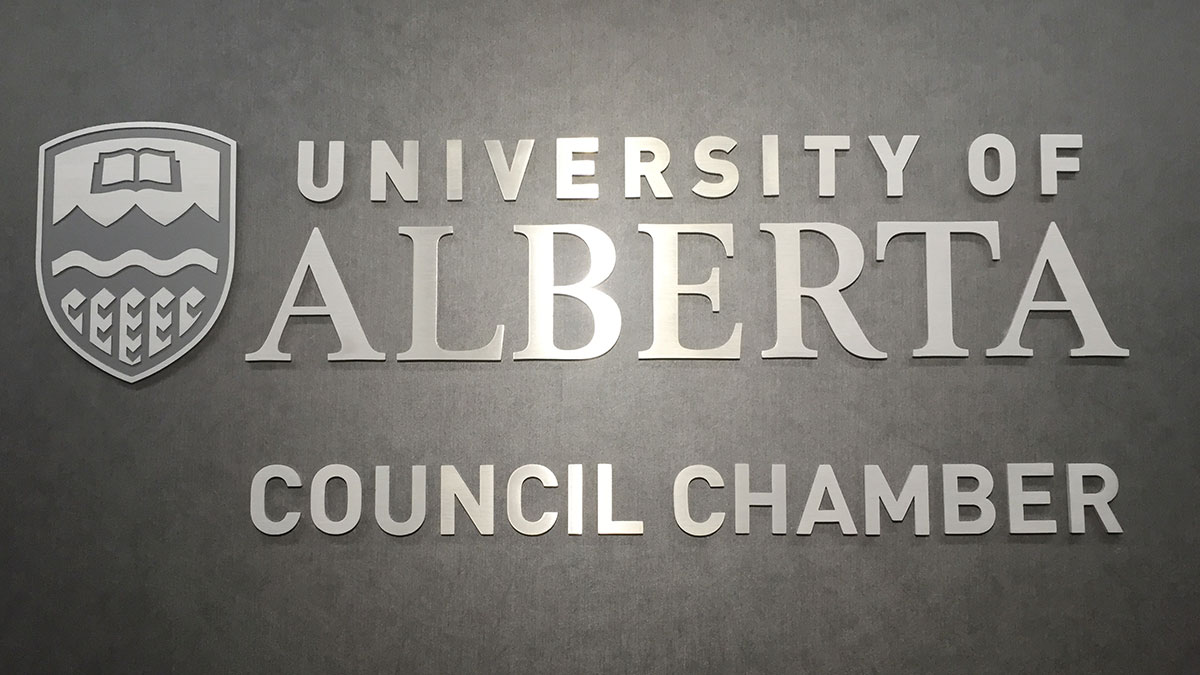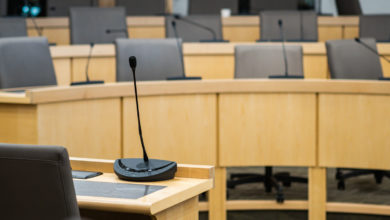Legality of Aboriginal Student Council referendum to be determined by Students’ Union judiciary
 Ab Sch
Ab Sch
The legality of several referendums and plebiscites, including the Aboriginal Student Council (ASC) Dedicated Fee Unit referendum, are being questioned in an application to the Students’ Union’s judiciary.
Former ASC president and current arts councillor Deirdra Cutarm alleged that Students’ Council breached their own bylaws by letting the ASC referendum and the Student Legal Services (SLS) plebiscite appear on the ballot on March 6 and 7 without confirming that they’ve passed the necessary legal hurdles beforehand. On March 7, Cutarm submitted a complaint regarding the plebiscites and referendums to Discipline, Interpretation and Enforcement (DIE) Board, which interprets and enforces the Students’ Union’s bylaws.
However, Students’ Union president Reed Larsen and others within the Students’ Union said Cutarm’s DIE Board complaint is based off a misunderstanding of the bylaw and that the SU followed the proper procedure regarding plebiscites and referendums. A hearing to evaluate the matter is scheduled for March 13.
“There are a lot of allegations in [the hearing application] that Students’ Council didn’t do its job,” Larsen said in a phone interview. “That is not the reality… all of the ballot questions were deemed legitimate by Students’ Council.”
After two days of voting, University of Alberta students voted yes to both the ASC referendum and the SLS plebiscite, with the former passing with 58 per cent of the vote and the latter passing with 77 per cent of the vote. The ASC fee will charge full-time students a $1.00 fee per term, from which students can opt-out. The SLS fee will charge students $0.75 per term.
In her application, Cutarm said since these mistakes weren’t caught until after voting had started, she feels it would be “inappropriate” to void the votes. However, Cutarm said Students’ Council, its bylaw committee, and the Chief Returning Officer (CRO) should be held accountable for allowing this oversight to occur.
“Both cases share enough similarities to show a repeated pattern of either unfamiliarity with the legislation to which they work under, or a complete indifference for following that legislation,” Cutarm wrote in her application.
Cutarm said council improperly cleared ASC to appear on the ballot even though their application was missing key information, such as the composition of the committee or board overseeing the administration of the fee. She also made similar arguments regarding the SLS plebiscite.
Cutarm further argued that ASC should’ve completed a petition, with the valid signatures of at least 15 per cent of the student population, before the question could’ve been approved to appear on the ballot.
“I believe there were multiple hurdles here that were inappropriately cleared,” Cutarm said. “Therefore I feel as if the ASC referendum question was added to the general election ballot erroneously.”
However, in a letter address to the DIE Board, Larsen said the ASC referendum followed the proper procedure and that Cutarm’s complaint is based on the wrong bylaw. Larsen added that Students’ Council has the ability to approve questions on the ballot internally without the need of the petition system Cutarm mentioned.
“[Cutarm] is reading it as if [ASC] has to do this petition process, but that’s not true,” Larsen said. “Students’ Council can elect to put things on the ballot that it sees as valuable.”
“Basically, at the end of the day, this has been made extremely complicated for what is a very very simple process,” Larsen added.
Larsen’s letter also said the ASC referendum was approved at a Students’ Council meeting on December 11.
Others in the Students’ Union are also saying Students’ Council did nothing wrong. In a statement to The Gateway, science councillor Michelle Kim, who chairs Students’ Council’s bylaw committee, reiterated that Cutarm is referring to the incorrect legislation in her DIE Board application and that ASC’s proposal was reviewed at a bylaw committee meeting on November 22.
While he is named in Cutarm’s complaint, CRO Ilyas Gora said he hadn’t had a chance to look over the application when contacted by The Gateway.




